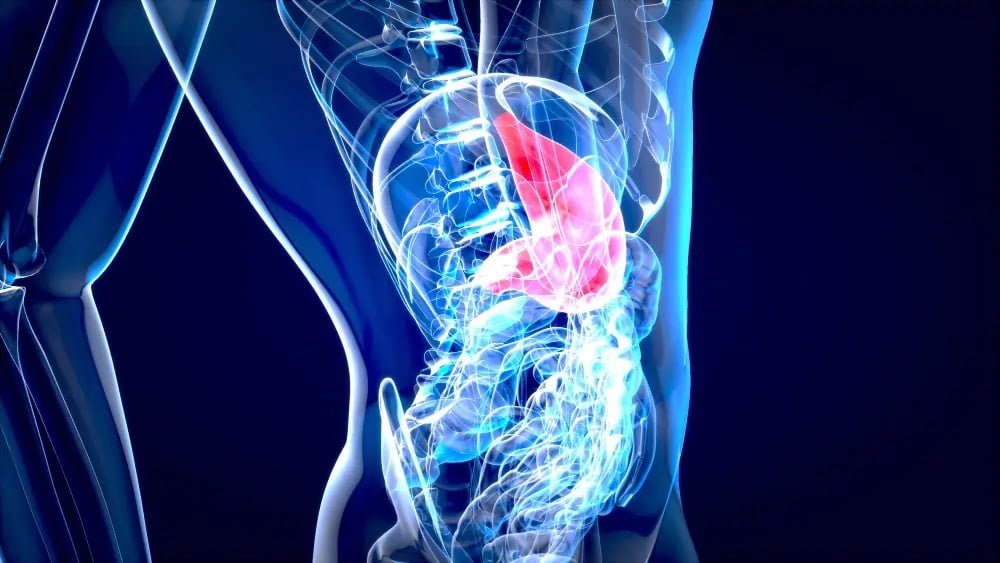If you’ve ever found yourself nodding off after a meal and wondered, “Is falling asleep after eating a sign of diabetes?” you’re not alone. This article aims to shed light on the relationship between post-meal drowsiness and diabetes.
Understanding the Connection
The short answer is that yes, falling asleep after eating can be an indicator of diabetes, specifically type 2 diabetes. This chronic condition arises when the body becomes resistant to insulin’s effects or fails to produce enough of it. Insulin, produced by the pancreas, plays a vital role in regulating blood sugar levels by facilitating the entry of glucose into the body’s cells for energy production.
When insulin resistance occurs, glucose accumulates in the bloodstream, potentially leading to various health issues, including heart disease, kidney damage, nerve problems, and vision impairment. People with diabetes may experience drowsiness due to fluctuations in their blood sugar levels, known as hypoglycemia (low blood sugar) or hyperglycemia (high blood sugar).
Insulin sensitivity is a key factor behind this phenomenon, as individuals with diabetes often struggle to produce or use insulin efficiently. When insulin fails to work correctly, it can result in a lack of energy, ultimately causing drowsiness after meals.
Other Factors for Post-Meal Sleepiness
However, it’s essential to note that falling asleep after eating isn’t exclusively linked to diabetes. Several other factors can contribute to this post-meal fatigue:
1. Eating Too Much
Overindulging at mealtime is a common culprit for feeling sleepy afterward. The body expends significant energy by digesting large quantities of food, leading to fatigue and a desire to nap.
2. Food Choices
Your choice of food can also influence your post-meal energy levels. Consuming heavy, fried, high-carb, and sugary foods can lead to a rapid spike and subsequent drop in blood sugar, resulting in fatigue. Opting for healthier, balanced meals like salads and smoothies can help you stay energized.
3. Dehydration
Inadequate fluid intake throughout the day, combined with a substantial meal, can lead to dehydration and subsequent tiredness. Staying well-hydrated is crucial for maintaining energy levels.
Signs of Diabetes
While post-meal sleepiness can be associated with diabetes, it’s important to recognize other signs of this condition. If you experience any of the following symptoms, it’s advisable to consult a healthcare professional for a proper diagnosis:
– Increased thirst and frequent urination
– Fatigue
– Unexplained weight loss
– Blurred vision
– Slow healing of wounds
– Tingling or numbness in the hands and feet
– Feeling hungry after eating
– Mood swings and irritability
Keep in mind that not everyone with diabetes will exhibit all these symptoms. Therefore, it’s essential to seek medical advice if you notice any of these signs.
The Importance of a Timely Diagnosis
Getting an early and accurate diagnosis of diabetes is crucial. Early detection allows for the prompt initiation of treatment, which can effectively manage the condition and prevent complications associated with diabetes. The appropriate treatment, whether it involves insulin injections, lifestyle adjustments, or medications, can be determined once diagnosed. Regular monitoring of blood glucose levels ensures the ongoing management of your health.
Falling Asleep After Eating and Diabetes
In conclusion, falling asleep after eating can sometimes be a sign of diabetes, but it is not the sole determining factor. Several elements, including dietary choices, portion size, and hydration levels, can contribute to post-meal drowsiness. If you suspect you may have diabetes, it is essential to seek medical evaluation and guidance.
FAQs: Diabetes and Drowsiness After Eating
1. Is falling asleep after eating always a sign of diabetes?
– No, it can be caused by various factors, including overeating, food choices, and dehydration.
2. What are the common signs of diabetes?
– Common signs include increased thirst, frequent urination, fatigue, weight loss, blurred vision, slow wound healing, tingling in hands and feet, and mood swings.
3. Why is it important to get a proper diagnosis of diabetes?
– Early diagnosis allows for prompt treatment, which can help manage the condition and prevent complications.
4. How is diabetes treated?
– Treatment for diabetes varies depending on the type. Type 1 requires insulin injections, while Type 2 can be managed with insulin, lifestyle changes, and medications.
5. Where can I get tested for diabetes and receive education on managing the condition?
– Hillcroft Physicians offers blood tests and education for those concerned about diabetes. Schedule an appointment to learn more about your health.
In this article, we’ve explored the question of whether falling asleep after eating is a sign of diabetes and discussed various factors that can lead to post-meal drowsiness. It’s essential to be aware of the signs of diabetes and the importance of early diagnosis and proper treatment. If you suspect you may have diabetes, don’t hesitate to seek medical guidance and support. Your health is worth it.





 Afrikaans
Afrikaans Albanian
Albanian Amharic
Amharic Arabic
Arabic Armenian
Armenian Azerbaijani
Azerbaijani Basque
Basque Belarusian
Belarusian Bengali
Bengali Bosnian
Bosnian Bulgarian
Bulgarian Catalan
Catalan Cebuano
Cebuano Chichewa
Chichewa Chinese (Simplified)
Chinese (Simplified) Chinese (Traditional)
Chinese (Traditional) Corsican
Corsican Croatian
Croatian Czech
Czech Danish
Danish Dutch
Dutch English
English Esperanto
Esperanto Estonian
Estonian Filipino
Filipino Finnish
Finnish French
French Frisian
Frisian Galician
Galician Georgian
Georgian German
German Greek
Greek Gujarati
Gujarati Haitian Creole
Haitian Creole Hausa
Hausa Hawaiian
Hawaiian Hebrew
Hebrew Hindi
Hindi Hmong
Hmong Hungarian
Hungarian Icelandic
Icelandic Igbo
Igbo Indonesian
Indonesian Irish
Irish Italian
Italian Japanese
Japanese Javanese
Javanese Kannada
Kannada Kazakh
Kazakh Khmer
Khmer Korean
Korean Kurdish (Kurmanji)
Kurdish (Kurmanji) Kyrgyz
Kyrgyz Lao
Lao Latin
Latin Latvian
Latvian Lithuanian
Lithuanian Luxembourgish
Luxembourgish Macedonian
Macedonian Malagasy
Malagasy Malay
Malay Malayalam
Malayalam Maltese
Maltese Maori
Maori Marathi
Marathi Mongolian
Mongolian Myanmar (Burmese)
Myanmar (Burmese) Nepali
Nepali Norwegian
Norwegian Pashto
Pashto Persian
Persian Polish
Polish Portuguese
Portuguese Punjabi
Punjabi Romanian
Romanian Russian
Russian Samoan
Samoan Scottish Gaelic
Scottish Gaelic Serbian
Serbian Sesotho
Sesotho Shona
Shona Sindhi
Sindhi Sinhala
Sinhala Slovak
Slovak Slovenian
Slovenian Somali
Somali Spanish
Spanish Sundanese
Sundanese Swahili
Swahili Swedish
Swedish Tajik
Tajik Tamil
Tamil Telugu
Telugu Thai
Thai Turkish
Turkish Ukrainian
Ukrainian Urdu
Urdu Uzbek
Uzbek Vietnamese
Vietnamese Welsh
Welsh Xhosa
Xhosa Yiddish
Yiddish Yoruba
Yoruba Zulu
Zulu